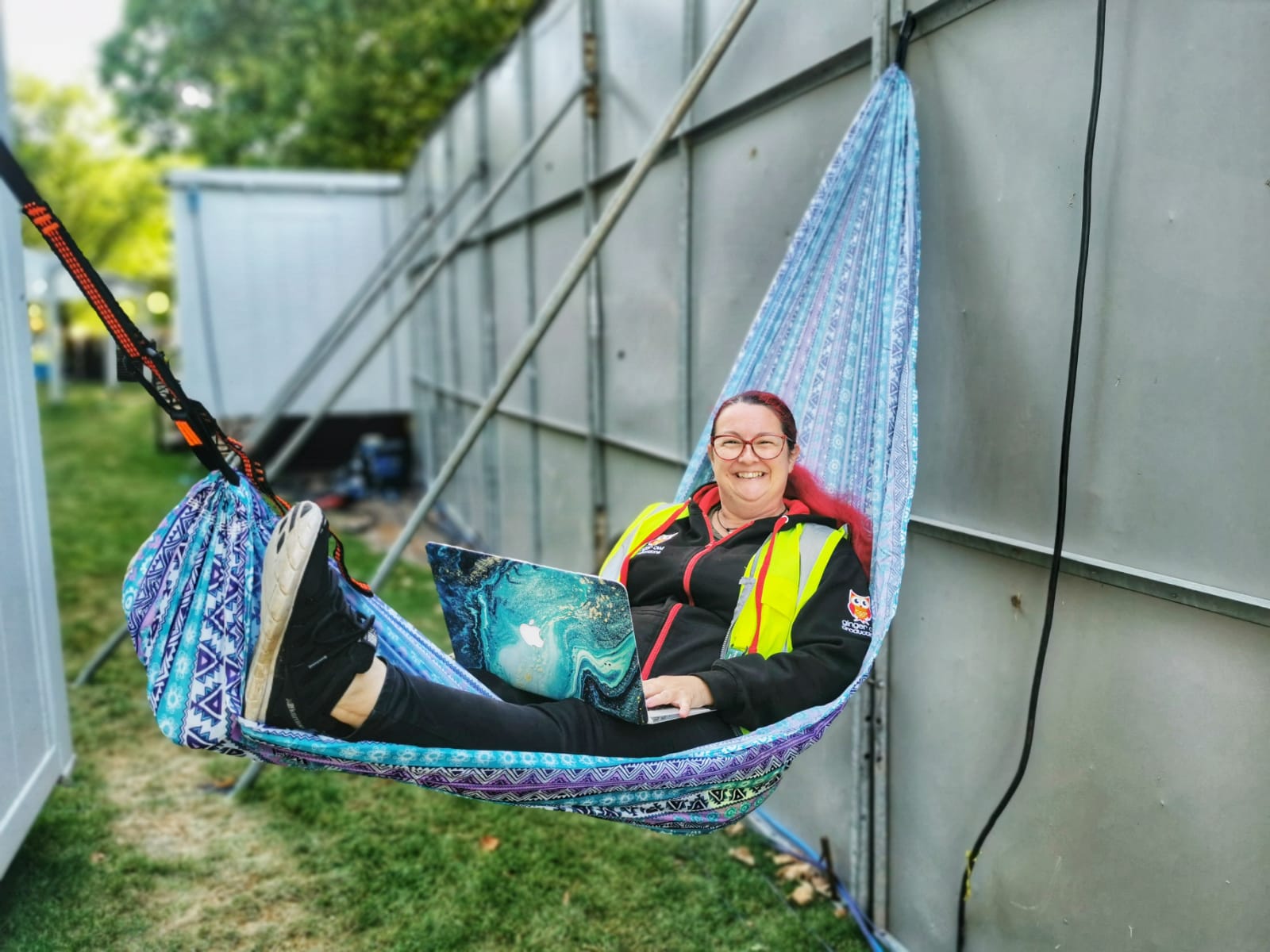Today is International Women’s Day. We’re pleased to share this blog, written by Live Events Manager, Kate Griffiths.
Kate is a truly inspirational woman who champions wellbeing in the industry. Here, she reflects on lessons learnt during covid that have impacted how she operates on site to improve her physical and mental health….
“During the pandemic, like a lot of us, I found a side hustle to keep the bills being paid. I also found myself really analysing where I’d got to in my career, how I wanted to change things up. We all had more time with friends, family and got a glimpse into an alternate reality where we’re not always working.
I took the time to be on some amazing calls offered by both the TPG and Suzi Green’s Back Lounge that started me thinking. I really wanted to re-wire the foundations of how I operated on site. I knew I could improve & focus on the physical & mental well-being of the teams I looked after as well as improve my own. I started with enrolling for Music Support’s Addiction & Recovery Workshop which really helped me and I then followed it up with the Mental Health First Aider course.
If you’re like me, you’ve found a fair few challenges when getting back into the flow of the intricacies of life on-site. Although you’ve missed the rapport and the unique relationships that form in the field or on the bus, I had gained a rose-tinted view on the unique elements of our working environment, so the first journey back into the foray had me rudely reminded of the flipside. The pressures, the challenging working environments, the triggering personalities felt so much harder during this time, like a re-entry shock. I sought out an industry therapist through Music Support to help me work through those frustrations as I didn’t want to leave the industry but ultimately, I had changed and needed to find a new way to operate in these challenging work environments.
I wanted to write an A-Z, which may still develop but having realised there was so much to say after just 3 letters, it may be best if it’s not all in one blog!
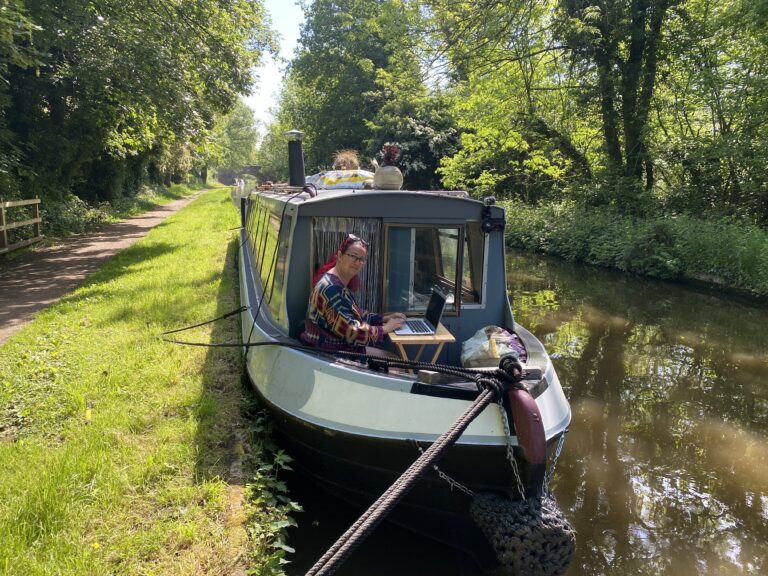
ACCEPTANCE
This point isn’t the easiest to make. In this industry there are things that just are. Sometimes you can challenge the status quo but in the magical world of events a few things are certain.
- The hours are long, especially on event days, for that reason it is not like a normal job. There’s rarely (never in my 20 years have I seen it!) budget to double up on a role to make the hours more like an 8-9 hour standard job.
- Depending on your role, you are sometimes away from those you love for weeks at a time.
- When you’re onsite you may be restricted to food that is far from what you would make for yourself at home and your sleep pattern will be heavily disrupted.
All these factors can have a big effect on your mental health. That’s not to say there aren’t tips & tricks you can learn over time to improve how some of those facts sit with you but it’s important when entering this industry that there is a level of acceptance & more importantly, awareness, of what you’re walking into. I make sure I clarify what the accommodation, food, travel arrangements are so I set my expectations accordingly, this also allows me to prepare.
THE AWKWARD SQUAD
It really doesn’t matter what industry you’re in, you’re always going to meet someone that just gets under your skin. The important thing to define is whether they’re merely an annoyance or whether it goes deeper than that.
It is not acceptable to feel bullied or belittled in any part of life but when it’s at work it can be quite complex to flag up. However, discrimination in any form, whether direct or indirect is never something to be accepted or hidden under the protection of it being banter (banter needs a blog all of its own). If you ever feel threatened or intimidated by someone’s words or behaviour, it’s super important to raise that.
For the people that are mere annoyances, the art of rising above their words, showering them with kindness & allowing their grumpy attitudes to roll off your back is key. Most often it’s someone having a bad day and you’re the person they’re offloading that to. It’s far harder for them to keep unleashing their frustration when you’re not rising up to the fight they want.
For those moments where it affects you on a deeper level, it’s important that you feel that you can raise this with your manager or colleagues in a safe space. Remembering everyone’s tolerance level is different, validation of someone’s concerns and taking them onwards if necessary is a key skill. It’s now an important part of how I approach my role to ensure that space is available to not only my immediate team but visitors from other departments too. I find that most people feel better after a little rant to get their frustrations off their chest.
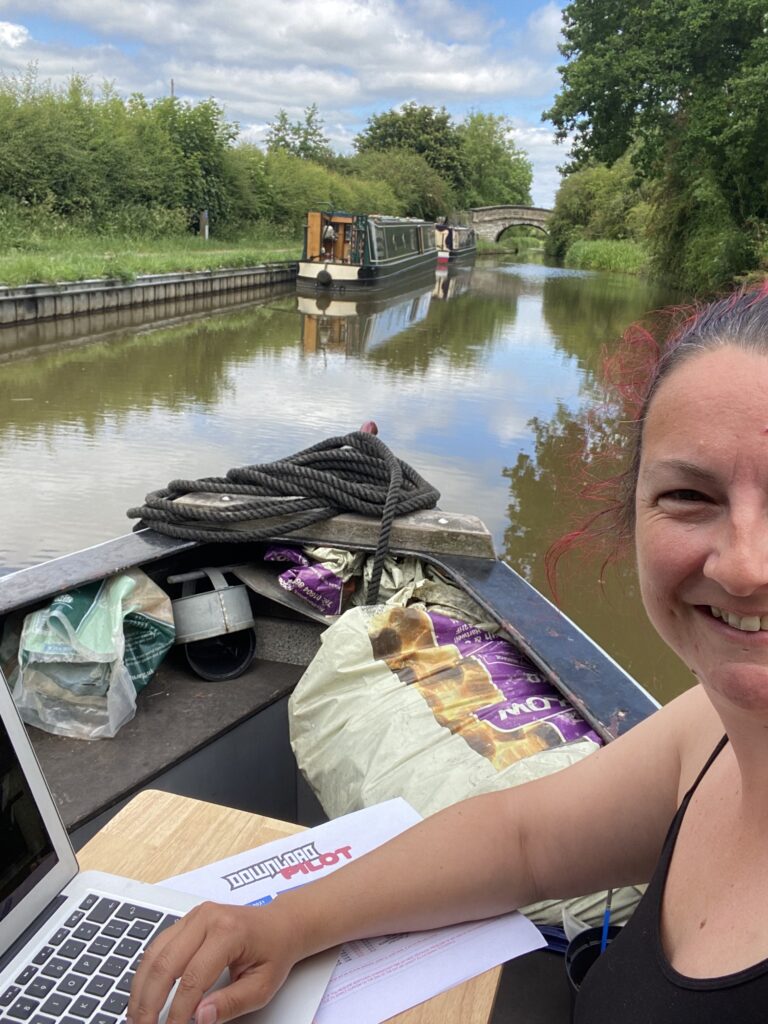
ASKING FOR HELP
One thing that’s become apparent since returning from the pandemic is that we have lost a lot of skilled people from the industry and there is a massive budget squeeze for the shows that are running. This is showing up as requests for multiple roles squashed into one that is now creating more pressure on the individual to deliver. The TM/FOH was always a common combo on a small to mid size tour but tours of all sizes are combining TM/PM/FOH/Merch/VIP, it is just ridiculous…..oh! and they want you to drive too!!!
It’s really important not to over commit or to speak up when your deliverables are at risk of being affected by the sheer volume of work you’re being expected to undertake. The risk of injury or accident is hugely increased as well as a person’s mental health suffering. This not only goes for team members being able to speak to their line managers but also for department heads raising it to senior event management.
It may be that a short-term solution of some ‘people power ‘ and resource is available to help you or another solution to ease the pressure, but unless you voice your concern, the event could suffer and there is risk to your reputation and your wellbeing. I see benefit in believing & cultivating a team ethos that the proactive raising of a concerned flag is an action that enables people to see you as a forward thinking, rational team player and that you care about the event delivery.
BOUNDARIES
A word flung around a lot that I think can be interpreted incorrectly as large unscalable walls or hurdles rather than sometimes the small speed bumps needed to protect important areas. It doesn’t automatically mean the word no, it can mean many things, for example; Less of that, more of this.
There are times where we do need all the hours we have to bring a show together, we accept this as being part of this crazy world we work within. But does it need to be every day? Can healthier work hours be implemented on advance days to ensure you’re bringing a well-rested, ‘A’ game self to the event days? Can protecting your diary post event allow you to rest, even if just for a day, at home to recharge?
On the subject of being expected to fulfil extra roles on top of the one you’re booked for. Having a clear boundary of what you are capable of & vocalising the limits is key. The temptation to keep saying yes, to prove you’re amazing is not sustainable over time. There’s possibly another reason why most superheroes change out of their costumes back to their average human being clothes as no-one can maintain the level of intense pressure, speedy fire-fighting & issue resolution 24/7.
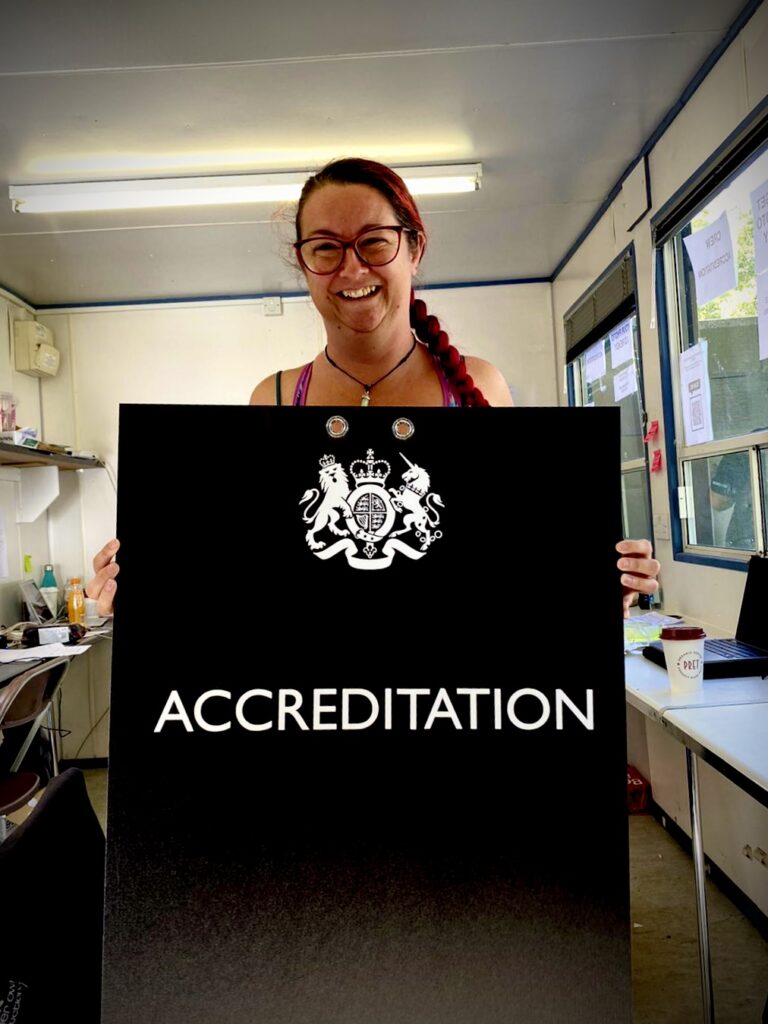
BALANCE
The term balance and specifically work/life balance has become so much more commonplace in conversation since the pandemic and for good reason. Boundaries are the edges & the mechanism in which we protect our balance so therefore are intrinsically linked.
What balance looks like for each person is very individual. It could be more social time, more holiday time, more off-site/on-site balance. What is important to remember is that it’s called balance for a reason, too much of one side and we feel it negatively. There is no prize for burning out and there comes big problems when the bills can’t be paid so what does balance look like for you?
For me it’s about carving out & protecting time in between bookings to allow myself to regroup. Be that advancing from a friend’s house so we use the spare snippets of time to hang out, days at home to eat well, exercise and keep manageable hours or booking larger windows of time off for holidays to decompress.
CHAOS
Cultivating calm within the chaos is such an important skill. Within my work and teams this involves a multitude of coping mechanisms that we employ. Sometimes its key music playlists to start the day gently or bring some energy when we’re flagging. Physical movement, a cabin dance off, a stretch in the fresh air outside the portacabin, a tea run to get some mental space from the compressed busy atmosphere.
It’s all so important, it’s unlikely that you’ll work a show where there is not a moment or element that feels chaotic. It’s in those times that having a team that supports each other, a management team that can read the room and whatever coping mechanisms work for you, will bring you through. Also, it is key to remember that the peak of chaos will pass, find strategies for you to maintain the calm such as breathing techniques, music to focus on the task or movement to burn off some of the adrenaline.
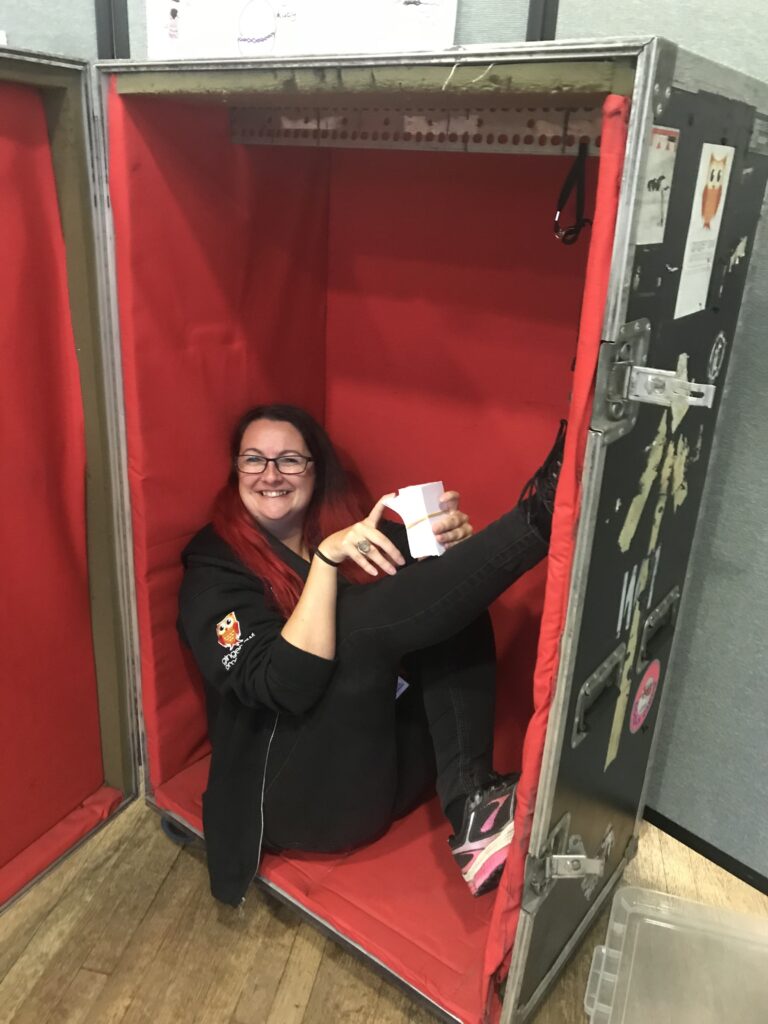
CHANGE
I have had many jobs over the years, but I can safely say I have never experienced having to cope with the level of change as much as I do in events. For the newly initiated it can seem super daunting to have a plan laid out and then something come along to give it a little knock. Especially when the time pressure of live events and the infamous ‘the show must go on’ is in the forefront of everyone’s minds.
This is where all your skills are tested so you may need to ask for assistance, get the team around you onboard as you may need to pull on that energy reserve to achieve the new plan. Curveballs are normal in this world, so think about how you deal with them.
Are you someone who pushes that pressure down the line to your team negatively or do you bring everyone together to work as a unit towards the new plan. Are there colleagues you can call or lean on for advice as they may have experienced a similar situation and help signpost you on how to firefight it.
………It’s become my absolute joy to bring out the best in people I’m working with. Since beginning a learning journey for improving my own mental health on site, I’ve been able to identify little easy quick wins that actually improve the whole teams mental wellbeing on site. The landscape is changing in the industry to champion better practice and hopefully, it will continue to grow.

We would like to thank Kate for sharing this fantastic blog with us.
Kate is proud to be a member of Music Support’s Mental Health First Aid (MHFA) alumni. Click here to learn more, including details of how certain freelancers can apply to take the training for FREE thanks to funding from our partners Backup Tech, Stagehand and The Roadie Cookbook.
Kate has also completed Music Support’s Addiction & Recovery Awareness workshop which is FREE to anyone who works in music and live events. Click here to find out more, read testimonials and sign up to join us.
